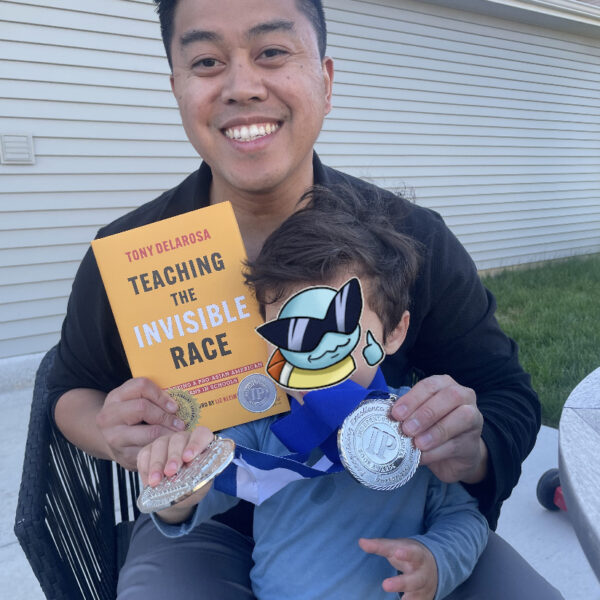
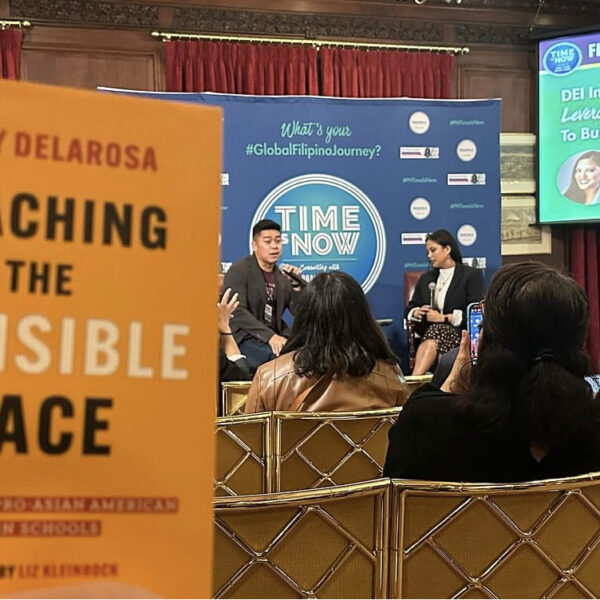
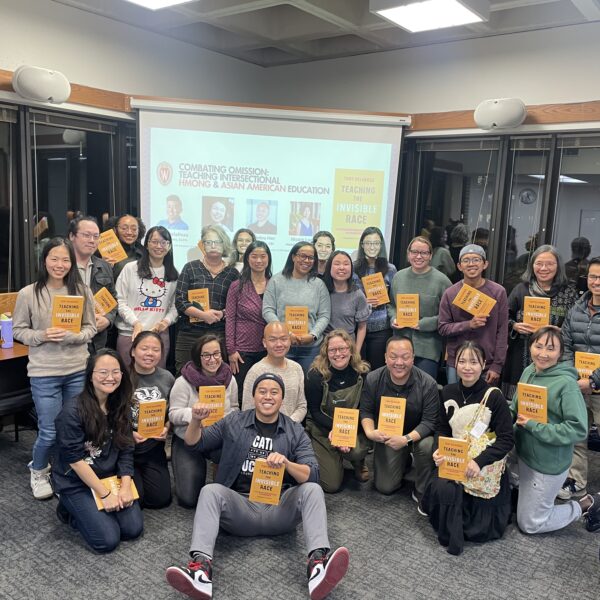
Every once in a while, a book comes along that not only educates but also shifts perspectives, bridging theory and practice to spark real-world change. Teaching the Invisible Race: Embodying a Pro-Asian American Lens in Schools by Tony DelaRosa is exactly that kind of book.
This powerful guide, awarded the Silver Medal for Education Commentary and Theory at the 2024 Independent Publisher Book Awards, offers educators the tools they need to build racial literacy and create more inclusive classrooms.
As a first-generation Filipino American author, DelaRosa blends personal narrative, academic scholarship, and poetry into a book that’s both moving and accessible. In response to the rise in anti-Asian racism, it’s a timely work grounded in solidarity with other marginalized communities.
We had the chance to sit down with Tony to discuss his inspiration behind the book and what it means to him to win an IPPY.
What Winning an IPPY Means: Legacy and Professional Impact
For DelaRosa, winning an IPPY is about more than professional recognition—it’s a deeply personal achievement. As a first-generation Filipino American debut author, this award marks a major milestone in his family’s history. “None of my family members has ever written a book, let alone an award-winning one,” DelaRosa shares. “For me, this is about legacy building.”
The award also has a special meaning for DelaRosa’s children. Winning the IPPY has given them something priceless: the chance to see themselves as creators and change-makers. “My kids have access to an award-winning Filipino and Asian American author, which helps strengthen their own sense of radical imagination,” DelaRosa reflects.
Professionally, the IPPY has been a game-changer, bringing added credibility to DelaRosa’s work. “Winning helped bring trust and validation towards my book,” he notes.
The recognition has also helped expand the book’s reach, with more colleges incorporating it into their programs. “More and more college courses are adopting my book in schools of education, and I can’t be more happy,” DelaRosa adds.
A Writing Process Rooted in Identity and Inspiration
Crafting his book was a deeply personal journey for DelaRosa, which involved weaving together many layers of his identity and experiences. With a background as a teacher and instructional coach, he set out to create a work that was not only accessible but also impactful.
“I knew that I needed to have a mixture of auto-ethnographic content, wide-spread empirical content, and poetry to ensure that my full self could be seen and felt while reading,” he explains.
This approach allowed DelaRosa to produce a book that speaks to educators, scholars, and anyone interested in racial literacy. Along the way, he drew inspiration from W.E.B. Du Bois’ The Souls of Black Folk, which significantly influenced his writing process. “Du Bois inspired me to insert myself in my writing,” he shares, highlighting the power of personal narrative to build connection and foster understanding.
Overcoming Challenges: The Journey of Writing a Book
Writing Teaching the Invisible Race came with its fair share of challenges, especially when it came to managing the overwhelming scale of such a big project. As DelaRosa puts it, “The biggest challenge for me was accountability and feeling overwhelmed by such a humongous project.”
He makes it clear that writing a book is “a labor of love and sacrifice,” and it takes a huge amount of time and dedication. “I think people forget that you sacrifice time to pour into this passion project,” he reflects.
To help tackle these challenges, DelaRosa leaned on a crucial support system: fellow authors and a strong network of “friendtors.” Regular check-ins with his publisher and other writers—both those still working on their books and those who had already completed theirs—helped keep him accountable and gave him a sense of community. “This helped me feel seen and foster community in what can be seen as a very lonely process,” he shares.
Ultimately, DelaRosa learned that writing a book doesn’t have to be a solitary journey. “Writing a book doesn’t have to be lonely if you have a cabinet of friendtors to lean on throughout,” he says. This network of support was key in helping him bring his book to life.
Advice for Aspiring IPPY Award Winners
For anyone thinking about submitting their work to the IPPYs, DelaRosa has some solid advice based on his own experience. “I would say after finding a few (1-3) categories that your book could potentially fit in, try to actually invest in the books that won those categories,” he suggests. By checking out past winners, you can get a better idea of what the IPPY judges are looking for.
This approach was key to DelaRosa’s success. When it came to the Education and Theory category, he turned to Dr. Liza Talusan’s award-winning book for guidance. “I read Dr. Liza Talusan’s book to help get an understanding of what the IPPY judges were looking for,” he shares. This gave him a better sense of the competition and helped him fine-tune his submission to meet the judges’ expectations.
What’s Next for DelaRosa
DelaRosa’s readers can expect another year filled with engagement, inspiration, and collaboration. “I’m working on being on tour for a second year!” he shares, full of enthusiasm.
This year, he’s set to publish work across several podcasts, deliver keynotes, and partner with schools from PK-20 to get Teaching the Invisible Race into the hands of as many people as possible. DelaRosa’s goal is clear: expand the book’s reach and keep the conversation going.
One of the standout events this year will happen on November 21st, 2024, in Long Beach, California, at Bel Canto Books Kubo LB. There, DelaRosa will lead a book talk alongside the celebrated spoken word poet Beau Sia, someone who played a pivotal role in DelaRosa’s own journey as a writer.
“Beau is partly why I became a poet in the first place,” DelaRosa reflects. “He was the first Asian American poet I was inspired by.” On this special day, Beau will be interviewing DelaRosa in a fireside chat, creating a powerful moment of intergenerational connection.
With many more events like this ahead, Teaching the Invisible Race is sure to keep sparking important conversations about Asian American racial literacy and education, reaching new readers and building a sense of community wherever DelaRosa goes.
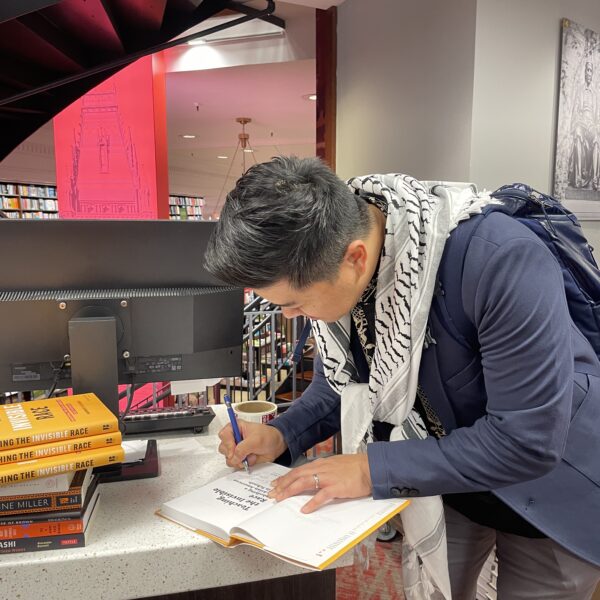
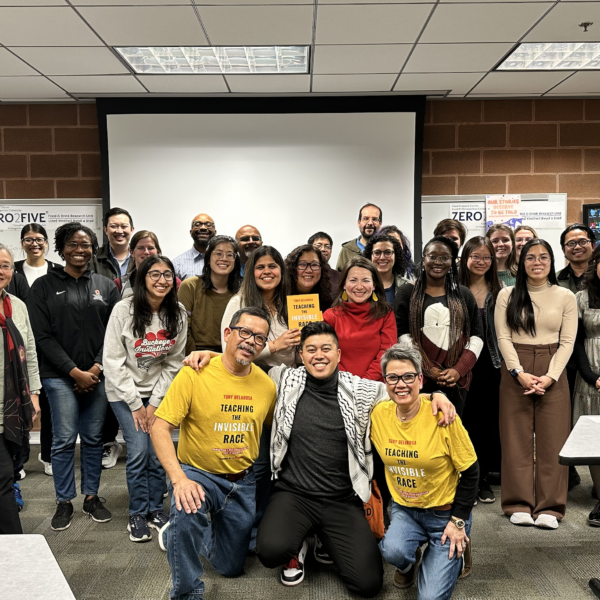
Submit Your Book Today
If you’ve poured your heart into a book that truly resonates with readers, why not give it the recognition it deserves? Submit your work for the chance to be celebrated alongside other amazing authors and make your mark in the world of independent publishing!




